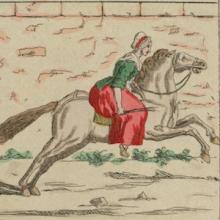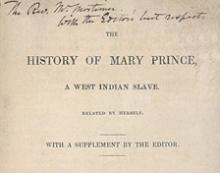Gender

Source Collection: Women and the Revolution
Women participated in virtually every aspect of the French Revolution, but their participation almost always proved controversial. Women's status in the family, society, and politics had long been a subject of polemics.

Africa Focus: Sights and Sounds of a Continent
By using the search filters effectively, teachers can have students compare and contrast various images of worship, schooling, work, and landscapes to highlight the vast cultural and ecological diversity of Africa.
Swaziland Digital Archives
Featuring approximately 600 photographs chronicling daily life and politics in Swaziland, the Swaziland Digital Archives provides visual insights into the experiences of childhood and adolescence in southern Africa over the past century.Moralia
Part of Plutarch's Moralia, these sayings by Spartan women demonstrate not only the martial culture of Sparta that emphasized physical courage and honor, but also the role of women in reinforcing that culture.
Constitution of the Lacedaemonians
Very little extant information exists on the life of Spartan women, but one of the main sources is Xenophon, Constitution of the Lacedaemonians which catalogs Sparta's institutions and customs with the goal of explaining how Sparta came to be a powerful city-state despite its relatively small pop
On the Murder of Eratosthenes
In this speech, an Athenian man, Euphiletos, defends himself against a murder accusation, claiming that his killing of his wife’s lover was justifiable homicide.

Gifts of Speech: Women's Speeches from Around the World
This site offers an archive of speeches by “influential, contemporary women.” Almost all of the speeches in the collection come directly from the authors themselves or from the organizations representing them and have not been published elsewhere.Short Teaching Module: Gender and Race in Colonial Latin America
When I teach a survey of the colonial history of Latin America, I often focus on the era’s cultural history, and specifically on the issue of hegemony and resistance.
Scandal at the Church: José de Alfaro Accuses Doña Theresa Bravo and Others of Insulting and Beating His Castiza Wife, Joséfa Cadena (Mexico, 1782)
Systems of honor in colonial Mexico meant that insults were more than just Swords. Utterances that defamed men and women of good reputation had to be answered or the slight to their personal status within the community would be permanent.

Short Teaching Module: Slavery, Labor, and Gender
In this case study, developed for a lower-division lecture class on “World History 1400-1870,” students explore gender though a primary source the personal account, “The History of Mary Prince, A West Indian Slave Related by Herself.” This first-person account was written by British abolitionists